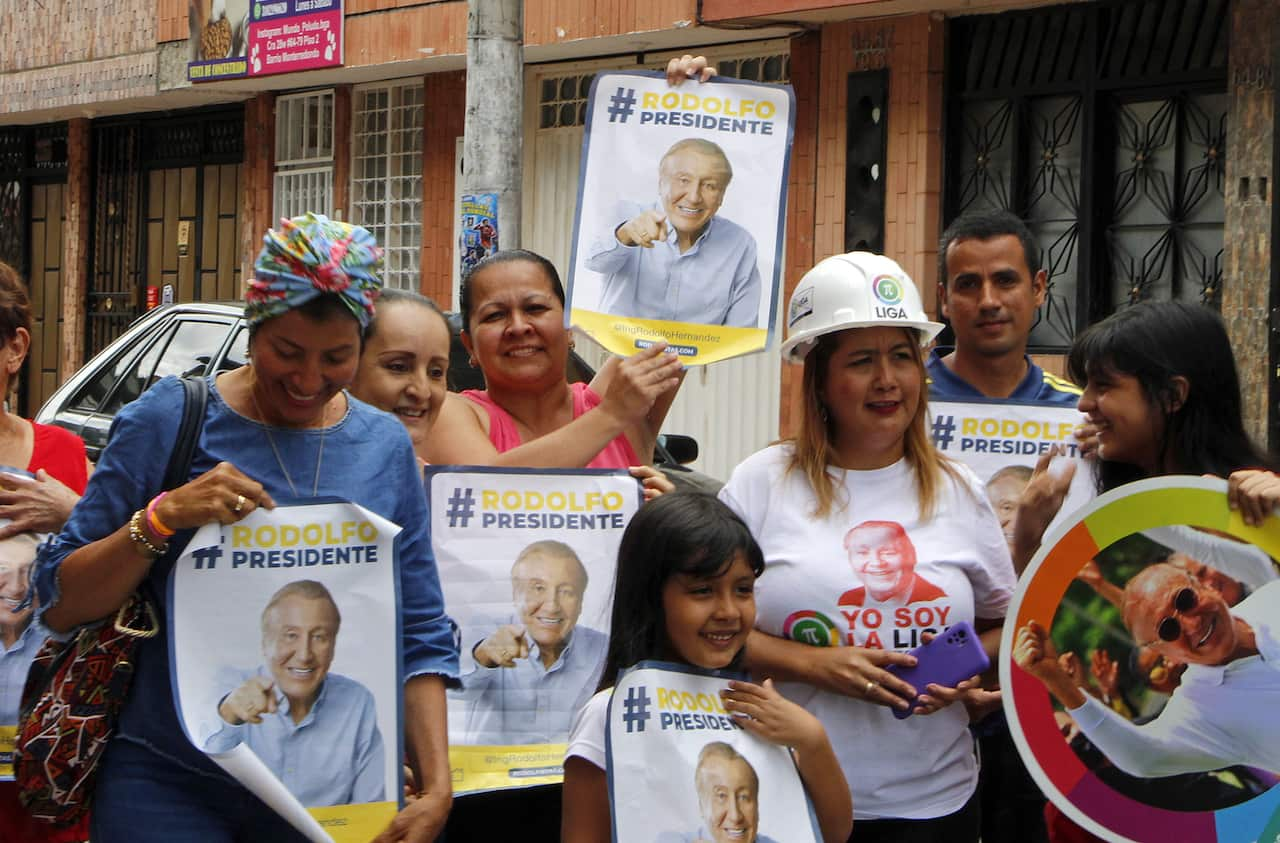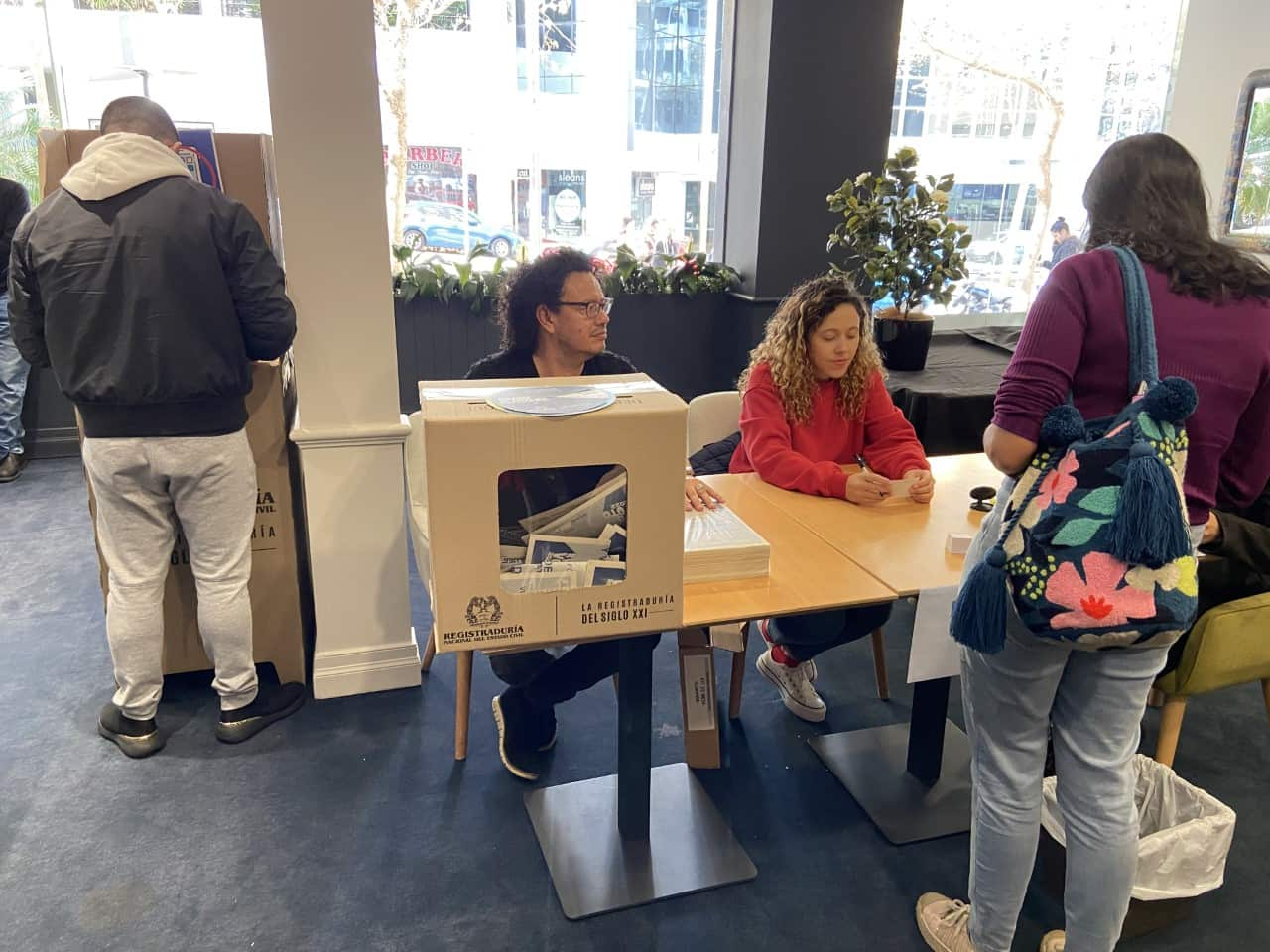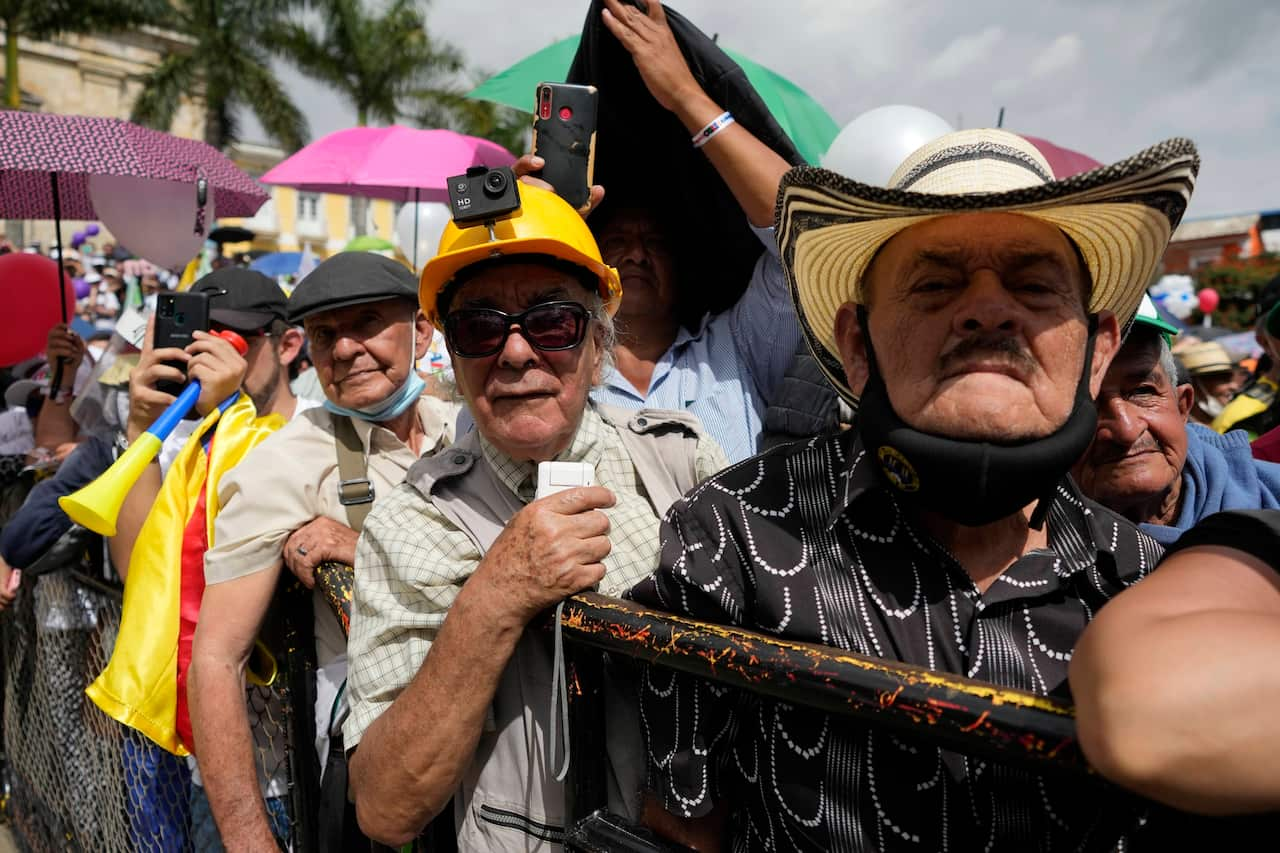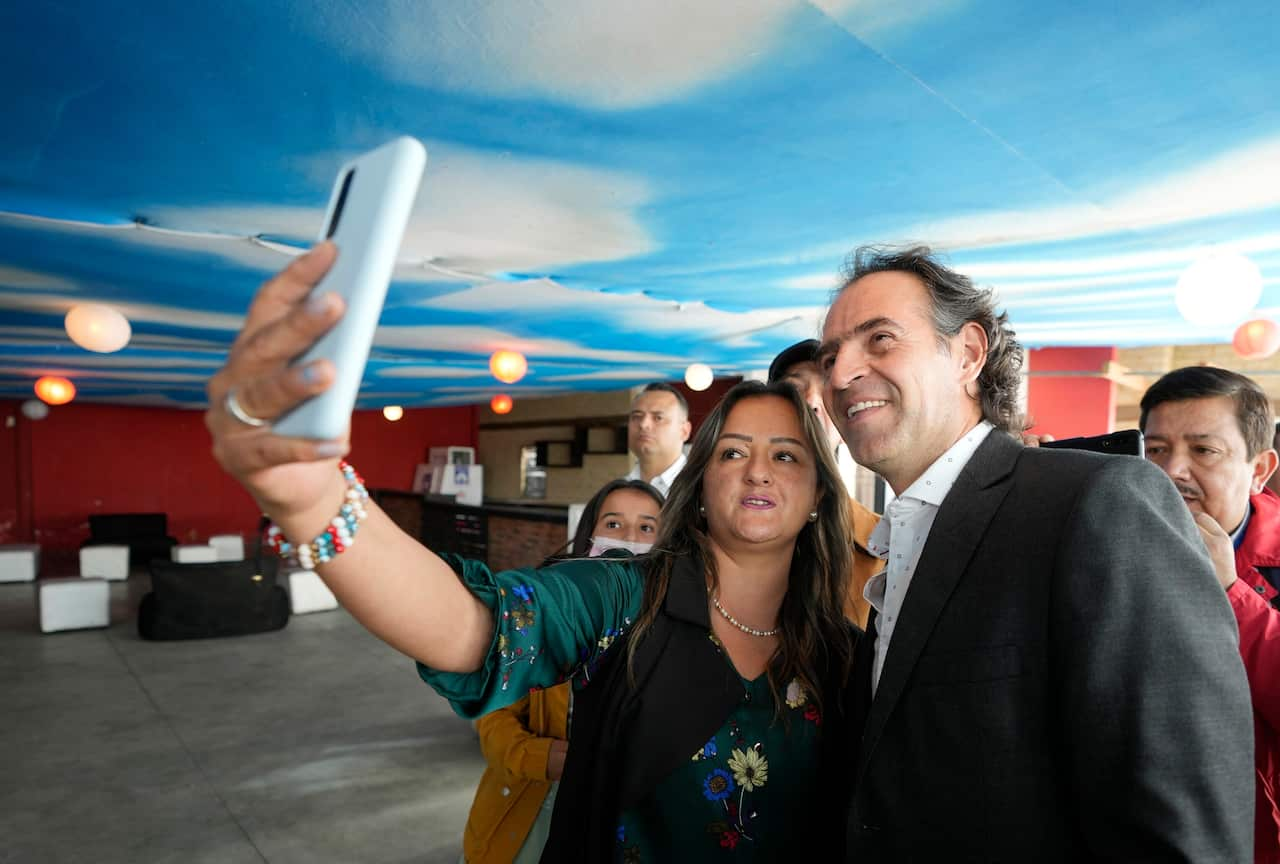Key Points
- Colombians in Australia backed the country's calls for change ahead of the vote on Sunda
- The vote takes place in a tense atmosphere, a year after a brutal security crackdown on street protests
Colombians vote on Sunday in the first round of presidential elections, with a leftist poised for victory for the first time in the country's troubled history.
The vote takes place in a tense atmosphere, a year after a brutal security crackdown on street protests that were fuelled by deepening socio-economic woes.
Polls show that many Colombians are pinning their hopes on Gustavo Petro, an ex-guerrilla and former mayor of Bogota, to address poverty, rural violence, urban crime and endemic corruption.
Mr Petro, 62, is hoping to avoid a 19 June run-off against 47-year-old Federico Gutierrez, a former mayor of second city Medellin who represents an alliance of right-wing parties.
To do so, he would need to garner more than 50 per cent of first-round votes cast.
About 300,000 armed police and soldiers will keep the peace at 12,000 polling stations countrywide, under the watchful eye of observers from the Organisation of American States and the European Union.

Supporters of presidential candidate Rodolfo Hernandez, a right-leaning independent populist. Source: AAP / Mario Caicedo/EPA
"I do not vote because it is always the criminals who win," 30-year-old street vendor Andrea Perez told AFP.
Colombian Australians vote from afar
While residents in Colombia prepare to vote for their new president, in Australia, the large community here has already had its chance.
Many headed to consulates around the country to vote for the nation's next president this week.
"It's a special day to exercise our democracy and make the changes that our country needs," Sydney resident David Pandora said.
"I voted for democracy because it doesn't matter where we are in the world, we're still Colombians," another voter, Adriana Zuniga, added.

Colombian Australians vote at the consulate in Sydney. Source: SBS News
Colombia 'needs change'
Ivan Duque - who beat Mr Petro in a runoff election in 2018 - is leaving with record disapproval numbers. Colombian presidents serve only one four-year term.
Around 40 per cent of Colombians today live in poverty, and the country has one of the highest levels of income inequality in the world, according to the World Bank.
The economy was hard hit by the coronavirus pandemic, and one in six city dwellers is unemployed.
The Duque government's image was not helped by its internationally denounced response to weeks of anti-poverty protests last year that saw dozens of civilians killed.
"Colombia needs change," office cleaner Petrona Guzman, 43, told AFP on the eve of the vote, in which she will make her mark for Mr Petro.
"The rich have priority over us, the middle class. It has always been like that. The majority of people are lost."
Mr Petro has promised to address poverty and to make Colombia's economy more environmentally friendly, partly by phasing out crude oil exploration.
Mr Gutierrez's focus has been on a "strong state" response to crime in the world's biggest cocaine producer.
A key voter concern is a flare-up of rural violence, despite a 2016 peace agreement that officially ended a near six-decade civil conflict.

Colombians are heading to the polls to pick their next president on Sunday, May 29. Source: AAP / Fernando Vergara/AP
Mr Petro, a former member of the M-19 urban rebel group which laid down arms in 1990, has vowed to pursue peace talks with the last remaining guerrilla group, the ELN, which was suspended under Duque.
Crime is a problem in the cities too, where residents complain of a rise in robberies they blame in large part on an influx of nearly two million migrants from neighboring Venezuela.
Change 'must happen safely'
On Friday, Mr Petro told voters the country had a choice "either to keep things as they are in Colombia, or change," leaving behind "corruption, violence and hunger."
In the same TV debate, Mr Gutierrez agreed change was needed "but this change must happen safely... without putting at risk families, homes... jobs."

Presidential candidate Federico Gutierrez poses for a selfie with a supporter during a campaign rally in Chia, Colombia, Monday, May 16, 2022. Source: AAP / Fernando Vergara/AP
"He (Mr Petro) is very close to communism," said 42-year-old businessman Freddy Montoya, who intends to vote for 77-year-old anti-corruption candidate Rodolfo Hernandez, told AFP.
Three other candidates, each with support in the single digits according to opinion polls, complete the picture.
The campaign has been marred by suspicions of fraud following counting irregularities reported in a primary voting round in March, and Mr Petro on Friday expressed fresh concerns about the software used by Colombia's vote count body.
Mr Petro and Mr Gutierrez have both received death threats, as has the leftist's running mate Francia Marquez, who could become Colombia's first-ever black woman vice-president.
Five presidential candidates were assassinated by opponents, drug traffickers or paramilitary groups in Colombia in the 20th century.
- With AFP
Share


